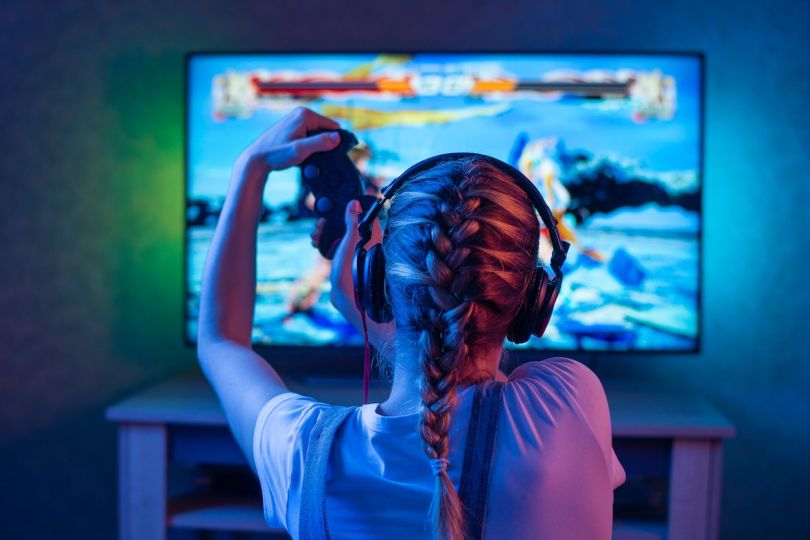
Statespace, an NYC startup that offers training for players of first-person shooter games, has raised $29 million in fresh funding. The Series B was led by Khosla Ventures, and will be used to double the company’s headcount.
This round comes amid a year of tremendous growth for Statespace. Both the company’s registered users and monthly active users have more than doubled since May, when it closed on a $15 million Series A also led by Khosla. This, says founder and CEO Wayne Mackey, is an indicator that games as a whole are being taken more seriously by consumers and investors alike, especially amid the pandemic.
“People have been forced to confront the positive aspects of gaming, rather than just the negative ones,” Mackey told Built In. “And it’s going to just accelerate the inevitability of a broader adoption of gaming and esports as a ‘legitimate sport.’”
Mackey is a lifelong gamer. In fact, he said he nearly failed out of high school and even lost a few relationships from his avid gaming. However, that love also taught him how to code, and eventually led him to study visual-motor neuroscience — how we coordinate the visual and motor parts of our brain. While he was getting his Ph.D., esports was just starting to take off, and he saw academics begin to study gaming more and more.
“What are the fundamental skills in gaming? How do we identify them? How do we measure them? And, if we have that, what do we do with it? What problems could we solve?” Mackey said. “We decided to start with training. We wanted to come up with something that would be helpful for people to solve a problem and really learn and answer those questions of which skills are important.”
This led to the creation of Aim Lab, which has been in beta for about 18 months. The tool runs on Steam and replicates the physics of first-person shooter games, allowing the user to practice their aim and train in that environment. It also measures how well the user performs. Aim Lab then takes that information and builds customized training scenarios accordingly, providing the player with a “little automated coach,” as Mackey puts it, that can help them improve, whether they’re a pro gamer or a first-timer.
The potential of this technology goes beyond just training esports players, it also has medical applications. Now, Statespace partners with places like Johns Hopkins University and New York University to work with people recovering from a stroke or individuals with cerebral palsy. The goal is to improve their motor skills.
For instance, Mackey says Statespace works with a quadriplegic esports team at Mount Sinai whose members have no function of their legs and little function of their arms. But, with Aim Lab and adaptive technology from Microsoft, they can play video games with anyone.
“Games are an amazing equalizer that anybody can participate in,” Mackey said. “It’s the ultimate interactive media where you can connect with so many people in a much more rich way. You can engage content in a much more rich way. And we can use them as a tool to leverage and enhance human learning, whether that’s in video games, in rehab, or medicine, or traditional sports.”
Looking ahead, Statespace is focused on growing internally in order to match this latest surge in demand. The company’s current headcount is 40, and the plan is to double that number in the next year or so.
Plus, because Statespace has been fully remote for nearly two years, the positions are available to anyone, and you don’t necessarily need a college degree to be considered. In fact, Mackey says about a quarter of its current team never went to college, some even dropped out of high school. For him, it’s all about the person.
“I didn’t go to college until I was in my late 20s. I was a competent enough person to get a job before I even went to college, I just didn’t have that opportunity,” Mackey said. “Why would we have these extra requirements for other people? I can be a true believer that we don’t need any of those things because I didn’t have any of those things. It’s worked amazing for us so far and we want to keep it going.”




